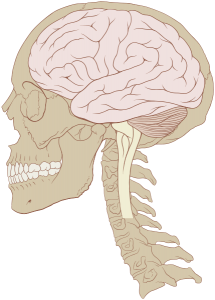Development & Debugging Methodologies, Concepts, Strategies & Logic

7 facts about the human brain
- Every thought or idea causes a physical reaction.
- What is expected tends to be realised.
- Imagination is more powerful than knowledge when dealing with your own mind or the mind of another.
- Once an idea has been accepted by the subconscious mind, it remains until it is replaced by another idea. The companion rule to this is, the longer the idea remains, the stronger the opposition there is to replacing it with a new idea.
- Each suggestion acted on, creates less opposition to successive suggestions.
- An emotionally induced symptom tends to cause organic change if persisted long enough.
- When dealing with the subconscious mind and its functions; the greater the conscious effort, the less the subconscious response.
Introduction
The biggest pitfall most people succumb to fairly regularly is bringing emotion into logical problem solving. It literally has no place and only serves to dilute, erode, derail or just completely halt any sane process for getting to a proper solution as quickly as possible. Arguments based strictly on opinion or style devolve the situation into butting heads and no ground or clarity are actually being gained, on any side. If someone wants to follow what you consider “bad” advice, let them. Point them to the proper resources and if they don’t care, there’s really nothing you can do for them.
Here’s some skills that are a definite must for anyone seeking to successfully develop or do any sort of computer troubleshooting
- Great organizational skills
- Adherence to logic and reason
- Great written and verbal communication skills
- Great memory and recall ability
Devise a system of organization and specific habits you follow to streamline your process that makes sense to you. What matters is not what tools you use or whether you organize by some code you make up, by dates, by alphabet.. what matters is that it makes sense and it’s systematic in some way for easy retrieval. It makes it something you can depend on when you run into probelms. If you know that “I always make my templates with xyz code included” or “I know this is how I always setup new domains”, then you’ll know if it’s not like that, you’ll know instantly didn’t make it. Knowing your own system intimately make all the difference when time is on the line.
Computers do not have feelings or care what any of us think, they follow coded instructions. Follow exact, dependable steps in your troubleshooting or development, don’t skip things you feel are “unimportant” or you do not understand or can’t get to work properly. Document what you do so you can look back and see failpoints clearly. If you don’t understand, stop. Look things up, ask questions or make tests.
Keep a physical notepad or a text editor open at all times when doing work or research. Organize like topics, info snips, links, instructions or other notes for easy recovery later after you’ve forgotten what you did. Always re-read anything you’re going to send out into the public or to prospective business clients. This gives you the opportunity to check for grammatical or typographical mistakes as well as making sure that what you’re communicating is clear. Run it by others if necessary, and consider their observances or opinions, especially if they are drastically different than your own.
Use memory triggers and other techniques to remember cues as to where you can get “information about SSL” for instance. If you’ve already done this research before and created yourself a document or have a system in place, have a way of quickly remembering where that document or system is, there’s no need to memorize the entire document, you made it so you didn’t have to memorize it.
It’s not necessarily *what* you know, but knowing how to find what you need and apply it, when you need it. Anyone claiming they’ve memorized even a single subject or computer language is not really being honest with themselves or anyone else. It’s simply too vast and interrelated a topic. Many complex languages and technologies combine to produce a website people can visit, it can’t be nailed down to even a handful of languages or topics. The most productive scenario is to have a system in place for organising your tools, information and resources in a way which is quick and easy to recall and utilise when we need it, an expert or professional person does just that, they strive for a balance efficiency and quality..

